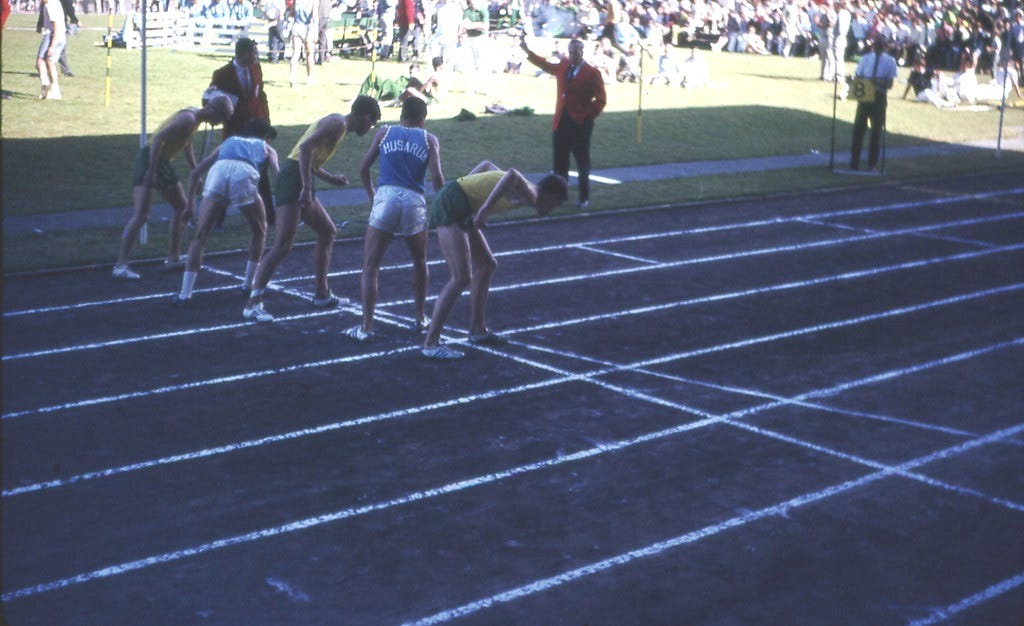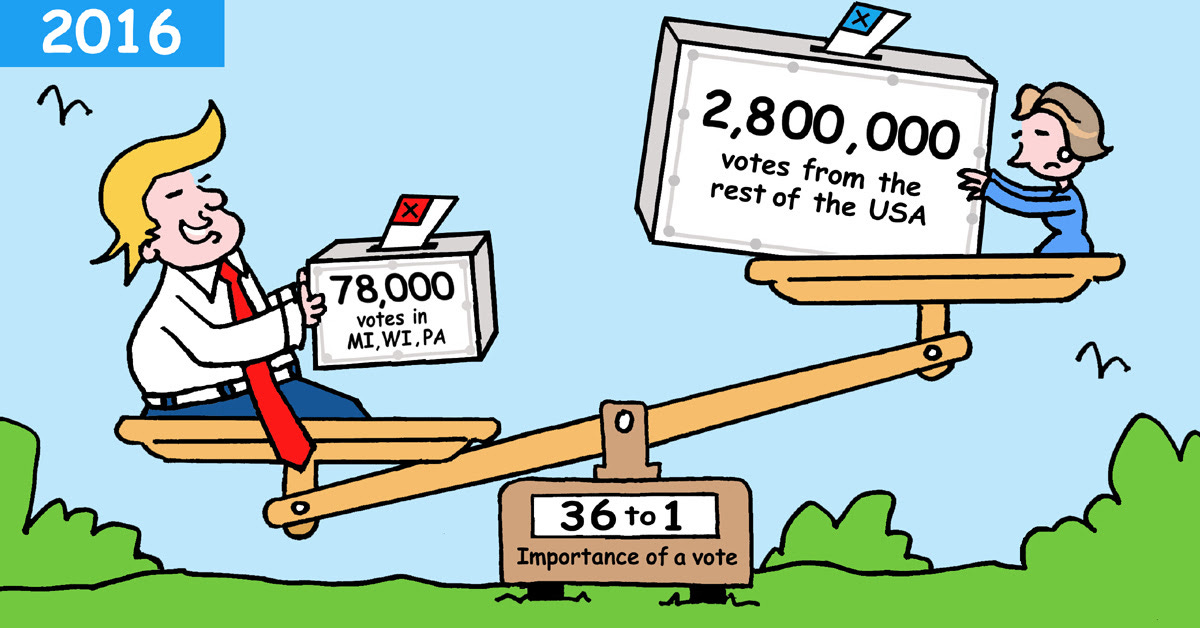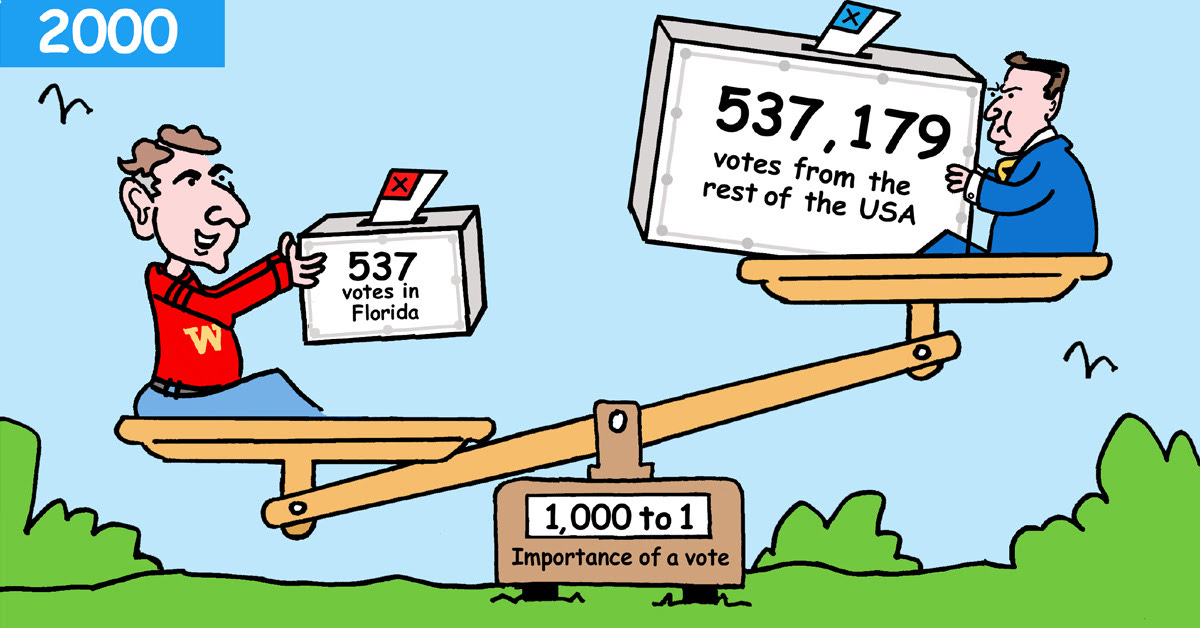Nathan Howard: Let the real winner win
We deserve better than an election system as outdated as only using messenger pigeons to communicate.
Housekeeping
Chapter 2 of Rediscovering the Oregon Way comes out tomorrow. Read Chapter 1 here.
Look forward to posts by Moira Bowman, Susheela Jayapal, and others in the coming weeks!
Now to the post!
Cofounder & President at East Fork Cultivars Advisor to various political campaigns and candidates. Board of Directors at various Oregon-based organizations.

Imagine Steve Prefontaine cruising to the finish line at Hayward Field a full 70 meters ahead of the next runner. You’d assumed Pre would be declared the winner. Yet, if the logic of the Electoral College was applied—where votes have different weights, there’s a chance Pre would have “lost.”
In this screwy system perhaps meters would count differently. Maybe the meters for the runner still barely rounding the curve are shorter…so much so that Pre manages to “finish” second.
Seem messed up? It should. A few hypotheticals around the most recent election show how someone laps ahead can finish second in our presidential contests…all thanks to the Electoral College.
Case 1: A switch of about 30,000 voters would have defeated President-elect Joe Biden—despite a nationwide lead of 7,060,140 votes.
Case 2: If around ten thousand voters in Arizona, Georgia, and Wisconsin voted differently that would have led to the defeat of Biden in the presidential election—again, despite Biden winning more than seven million more votes overall.
In both cases, some votes were several hundred times more important than the other 7,060,140.
A broken system
The Electoral College, like so many of our broken institutions—ranging from Portland's busted form of government, and the US Senate, up to the Supreme Court—are in desperate need of either complete abolition or serious modernization.
Things that worked well several hundred years ago, which haven't been updated in several hundred years, no longer work that great in 2021.
That shouldn’t be a surprise to anyone.
But how do we make elections in the United States more fair? And, simply make more sense?
National Popular Vote has charted a course. They have been working tirelessly behind the scenes for 15 years to end the Electoral College in favor of a system that the United States has promised all along: one where one-person actually does equal one-vote.
The ridiculousness of our current system would be almost be comical if lives weren’t literally at stake.
I imagine a group of elementary school students deciding on what game they should play. One student suggests that they raise hands to decide which of the two games to start.
Seven students raise their hands for four square. Eight students raise their hands for a game of tag. Tag wins.
But the student that suggested they raise hands to decide on the game explains that three of the kids that raised their hands for four square were standing in a special spot in the playground so their vote is worth double.
That wouldn't make much sense to any of the elementary school students. But somehow that's how we choose the leader of our country. I get that the system at one time had a purpose and was designed for more fair outcomes. Long gone are those days…
Numbers don’t lie*
Four square has won a lot in the playground that is our politics. Incredibly, five of our 45 presidents have come into office without winning the overall vote.
State winner-take-all laws (that award all of a state's electoral votes to the presidential candidate who gets the most popular votes in each separate state) make it possible for a candidate to win the presidency while losing the national popular vote.
In these "wrong-winner" elections, the candidate wins one (or a few) states by very small margins, while losing the rest of the country by a large margin.
2016
In 2016, Donald Trump became president even though Hillary Clinton won the national popular vote by more than 2,800,000 votes. Trump won because he carried Michigan by about 11,000 votes, Wisconsin by about 23,000 votes, and Pennsylvania by about 44,000 votes. Each of these 78,000 votes was 36 times more important than the 2,868,518 votes cast in other states.
2000
In 2000, George W. Bush became President even though Al Gore won the national popular vote by 537,179 votes. Bush won because he carried Florida by 537 votes. Each of these 537 votes was 1,000 times more important than the 537,179 votes cast in other states.
1876
The 1876 election was similar to the 2016 election in that small margins in three states enabled Rutherford B. Hayes to eke out a one-vote win in the Electoral College. Hayes led Samuel Tilden by 889 votes in South Carolina, 922 votes in Florida, and 4,807 votes in Louisiana—for a total lead of 6,618 votes. Each of those 6,618 votes was 38 times more important than Tilden's nationwide lead of 254,694.
1888
The 1888 election was similar to 2000 in that one state decided the presidency. Benjamin Harrison became president by carrying New York by 14,373 votes—even though Grover Cleveland won the national popular vote by 89,293. Each of those 14,373 votes was 6 times more important than Cleveland's nationwide lead of 89,293.
2024?
We deserve better than an election system as outdated as only using messenger pigeons to communicate. Upending a system that’s benefits the few, the wealthy, and the corrupt will not be easy.
We better get started.
* data and graphics are provided by National Popular Vote.
*************************************
Reach out to Nathan:
@NathanHowardPDX
Keep the conversation going:
Facebook (facebook.com/oregonway)
Twitter (@the_oregon_way)
Check out our podcast:
#115






